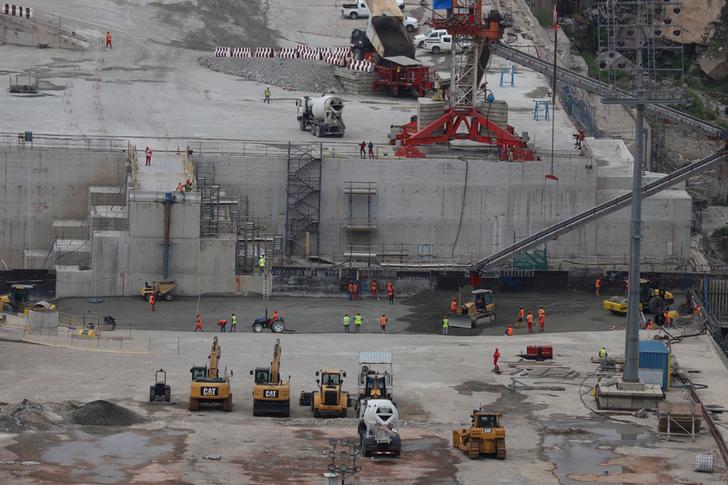South African cement producer PPC wants to invest in current and new markets after a restructuring ended its liability for debts at its PPC Barnet business in the Democratic Republic of Congo (DRC), CEO Roland van Wijnen tells The Africa Report.
The company is seeking a co-investor to expand its capacity in Ethiopia, where it already has a stake in Habesha Cement, van Wijnen says from Johannesburg. The operation is “performing well” but fresh capital will be needed to expand, van Wijnen says.
Existing cement production in Ethiopia is outstripped by demand. In 2019, domestic producers supplied about 8.9m tonnes of the 12m tonnes needed, according to the Chemical and Construction Inputs Development Institute.
Prospects for further growth in demand prompted the creation in March of a joint venture between West China Cement and Ethiopian industrial conglomerate East African Holding for a $2.2bn industrial complex that will include a cement factory in Lemmi town to the north of Addis Ababa.
PPC operates in six countries: South Africa, Ethiopia, the DRC, Rwanda, Zimbabwe and Botswana.
- Oversupply in the DRC market meant that PPC Barnet could not generate enough cash to service its debts, turning the operation into an “endless black hole”, van Wijnen says.
- The PPC Barnet restructuring removed the potential liability of $175m to the parent as part of a debt-for-equity swap.
- The DRC will remain oversupplied with cement “for the foreseeable future,” van Wijnen says.
- He sees a strong pipeline of public construction tenders in South Africa, supporting future demand.
- Rwanda saw strong volumes in 2020, and the project pipeline includes the building of a new airport, he says.
- PPC also wants to reduce its coal dependency and is carrying out feasibility studies on reducing the use of clinker in its cement, he says.
- Overall, this year, volumes for the company are not likely to be very different from those seen in 2019, he tells The Africa Report.
Weak controls
The company may not have heard the last of its DRC financial restructuring. A sharp increase in PPC’s share price, in the days prior to the announcement of the agreement on 31 March, suggested the possibility that someone had good reason to believe that the negotiations were about to succeed.
The Johannesburg Stock Exchange (JSE) said it was reviewing trades in PPC shares due to the price rise and increased trading volumes before the announcement. The JSE said it would refer the matter to the Financial Sector Conduct Authority if it concluded that the trades warranted further investigation.
- The company has analysed the share-price move and found nothing to suggest PPC involvement, van Wijnen says.
- PPC points out that multiple parties are involved in debt-restructuring talks.
- No new controls are being introduced as a result of the incident, and there hasn’t been any update from the JSE, van Wijnen says.
Weaknesses in internal financial controls are another area of concern for shareholders. In its audit opinion for PPC’s financial statements for the year to March 2020, Deloitte said there had been “a material breakdown in internal controls over financial reporting . . . Challenges were experienced in obtaining sufficient and appropriate evidence, particularly in areas requiring judgement and estimation.”
One of the problems concerned the Ethiopian operation. PPC’s financial statements for the year to March 2020 state that the group discovered that Habesha restated its full-year 2019 financial statements due to the first-time adoption of International Financial Reporting Standards (IFRS) in Ethiopia.
- PPC acknowledged that it should have adjusted its share of losses in previous years to comply with IFRS but did not do so.
- This led to a restatement of PPC’s results in September in which the value of the Habesha stake was fully written down.
Bottom line
Many investors want to see firm control over financial reporting to be convinced that PPC can manage its international expansion.
Understand Africa’s tomorrow… today
We believe that Africa is poorly represented, and badly under-estimated. Beyond the vast opportunity manifest in African markets, we highlight people who make a difference; leaders turning the tide, youth driving change, and an indefatigable business community. That is what we believe will change the continent, and that is what we report on. With hard-hitting investigations, innovative analysis and deep dives into countries and sectors, The Africa Report delivers the insight you need.
View subscription options

